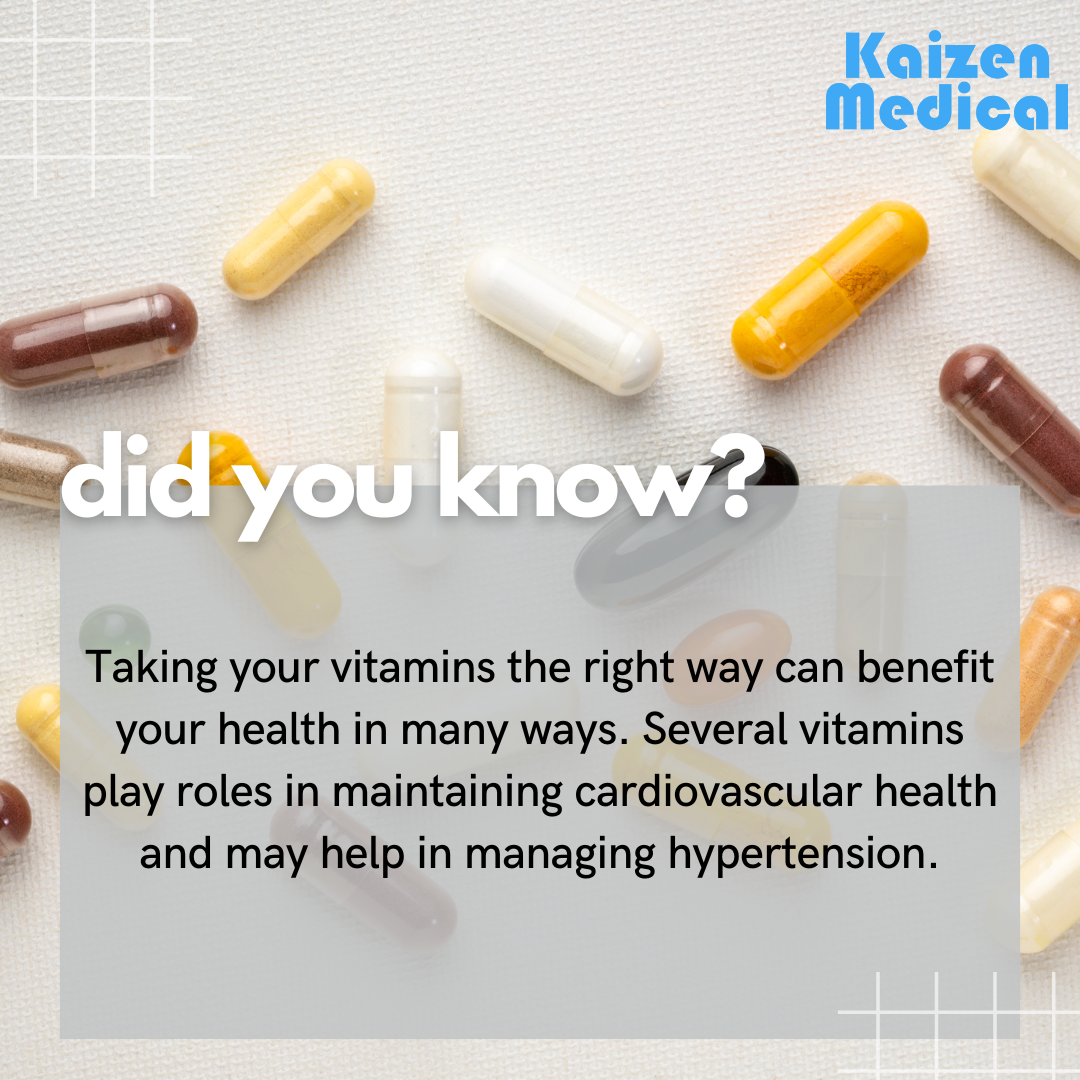How well do you know your vitamins? Taking your vitamins the right way can benefit your health in many ways.
Several vitamins play roles in maintaining cardiovascular health and may help in managing hypertension.
Here are some key ones!
Vitamin D
Vitamin D deficiency has been linked to hypertension and cardiovascular disease. Adequate levels of vitamin D may help regulate blood pressure by supporting proper function of the renin-angiotensin-aldosterone system and reducing inflammation. Sunlight exposure, fortified foods, and supplements are sources of vitamin D.
Vitamin C
Vitamin C is an antioxidant that may help lower blood pressure by improving endothelial function and reducing oxidative stress. It also supports the body’s production of nitric oxide, which helps dilate blood vessels. Citrus fruits, strawberries, kiwi, and bell peppers are good sources of vitamin C.
Vitamin E
Vitamin E is another antioxidant that may help protect against hypertension by reducing oxidative stress and inflammation. Nuts, seeds, and vegetable oils are good sources of vitamin E.
Vitamin B6 (Pyridoxine)
Vitamin B6 helps regulate homocysteine levels in the blood. Elevated homocysteine levels are associated with an increased risk of hypertension and cardiovascular disease. Foods rich in vitamin B6 include poultry, fish, bananas, potatoes, and fortified cereals.
Folate (Vitamin B9)
Folate works together with vitamins B6 and B12 to regulate homocysteine levels. High homocysteine levels are associated with hypertension and cardiovascular disease. Leafy greens, legumes, fortified grains, and citrus fruits are good sources of folate.
Vitamin K2
Vitamin K2 may help prevent calcium buildup in the arteries, which can contribute to hypertension and cardiovascular disease. Fermented foods like natto, cheese, egg yolks, and certain meats are sources of vitamin K2.
While these vitamins may be beneficial for managing hypertension, it’s essential to obtain them through a balanced diet rather than relying solely on supplements.
Always consult with a healthcare professional before starting any new supplement regimen, especially if you have underlying health conditions or are taking medications. Additionally, managing hypertension typically involves lifestyle modifications such as maintaining a healthy weight, regular exercise, limiting sodium intake, moderating alcohol consumption, and managing stress.




